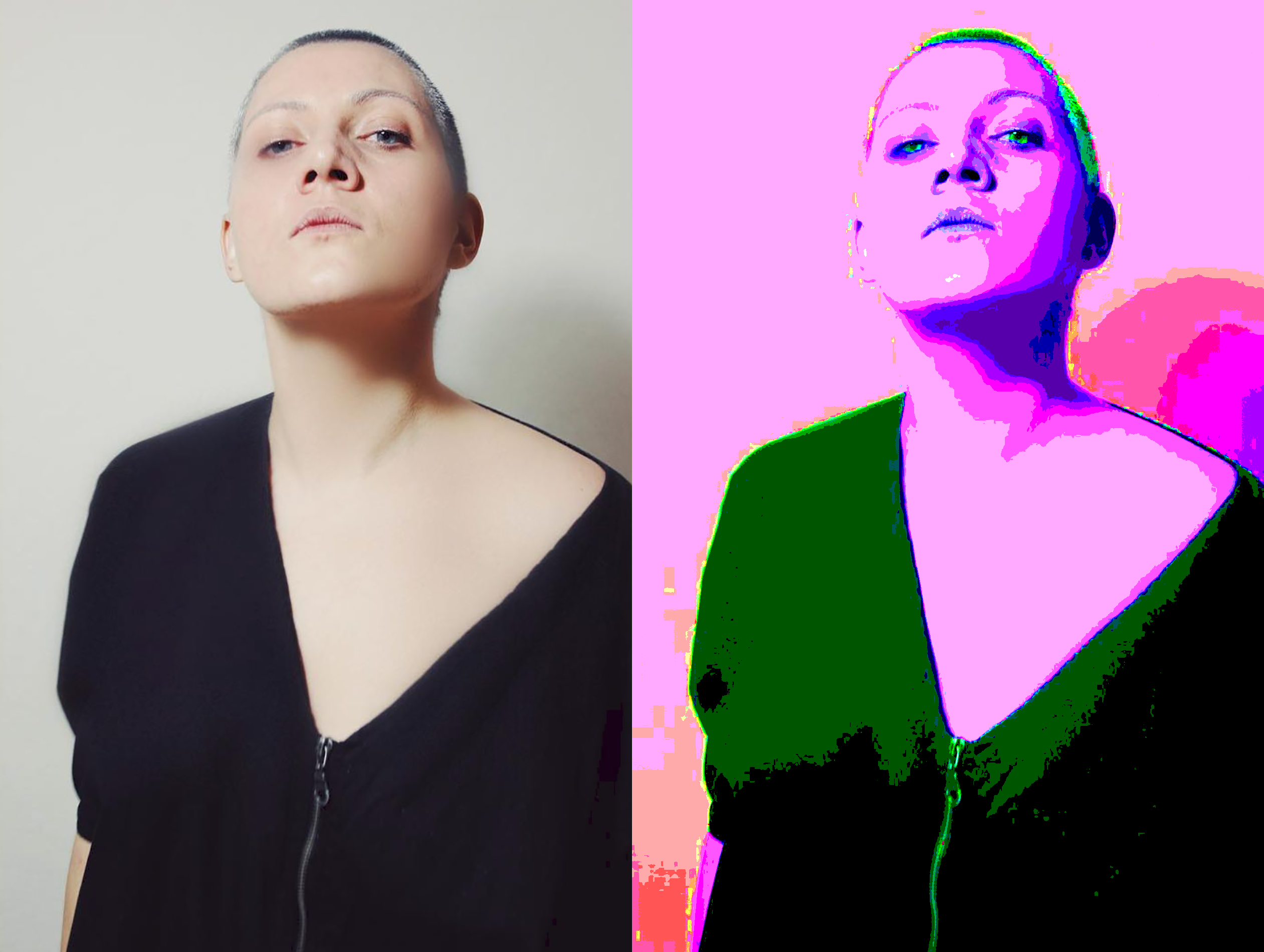In Part One of an extensive interview, Thea Soti tells me some of the processes involved in her complex musical workflow. Part Two of our interview will be published soon.
By Keith Walsh
From the very dawn of humanity, people have vocalized musically. We can only imagine the forms and shapes these sounds manifested in the vocal chords of our primate ancestors. And we can imagine the future of vocal music as well.
Thea Soti, a composer and sound artist located in Budapest, Berlin and Paris, gives us a work from the future, when the human voice is altered and manipulated by mysterious technologies. The new album, ØVER+, on the Planisphère label, compels us to listen to the human voice in new ways.
ØVER+ will be released on July 1, but I’m thrilled to share this ‘avant premiere’ of a single from the album, titled “Saturn.”
Synthbeat: Is it absolutely your voice that generates all the sounds?
Thea Soti: It is the sound researcher inside me that tries to base all my tracks exclusively on my voice. I would like to discover to what extent I can stretch it: create instruments, textures, unconventional sound environments. On the other hand, sometimes my musical impulses override my conceptual ideas, so I end up including some synths and beats. But I would say that 85% of my new album is generated through vocal sampling and digital effects.
Synthbeat: What do you call this genre, other than experimental? Is it a subset of Lo-Fi?
Thea Soti: I wouldn´t call it Lo-Fi. Only because I focus on other parameters of the sound than what we are used to in a mainstream musical environment, it doesn´t make it Lo-Fi. Actually, the album has been engineered, mixed and mastered under high-professional circumstances. It has only to do with our perception and expectations based on the music that we hear in radios and on streaming platforms. It has all been produced to trigger the same sonic effect, thus all of it sounds a bit the same. When you work with the noise qualities of digital sound or that of the human voice, people tend to perceive it as waste or the remains of something. But actually it is hi-fi trash, luxurious noise.
“I believe, every era had their own futurist movements, where artists, researchers, etc. took risks, operated through unconventional thinking and opened up multiple perspectives.”
Thea Soti
Synthbeat: After you sample your voice, what are you using to twist it, and play it back?
Thea Soti: Every time is very different. I sometimes pre-record parts and then twist them in the post-production through digital effects. I mostly like to build complex effect chains, spend long hours on choosing effects and setting their parameters, creating a peculiar vocal environment. While other times, I already manipulate the voice during the recording and record the dynamic effects simultaneously. I re-sample my voice live, meaning that I record and edit it in real-time. Yet, sometimes, if it is a more conceptual composition – I like to prepare samples beforehand. I see digital effects as partly interactive: I am aware of the processing and how the effects are going to change the vocal quality, yet there´s a certain percentage of randomness. I love this element. The computer always reacts somehow differently, so it feels like that I am also playing with the machine and not only using it as a tool.
Synthbeat: About being a futurist – is there any opposition, or is it embraced in Europe?
Thea Soti: If by futurist, you mean someone who is concerned about transformational processes, radical rejuvenation of the culture and society and is seeking new aesthetics through technology –yes, this is definitely a trend and I myself feel somewhat drawn to it, as well. Though, I believe, every era had their own futurist movements, where artists, researchers, etc. took risks, operated through unconventional thinking and opened up multiple perspectives. Only, the expression “futurism” just didn´t exist in the Renaissance. Haha. New-age futurism is a wide-spread phenomenon nowadays, yet I – personally – do observe a slight drop-back as life got unpredicted and uncertain since 2020. Pandemics, wars and political extremism are suffocating the world. I feel that people tend to become more traditionalists in hard times and rather stick to conventional and experienced values than to research the future or move towards experimental.
(Header image © Taisiia Chernyshova, edited by Synthbeat.com )
Thea Soti dot com
Thea Soti on Bandcamp
Planisphère on Bandcamp
finis
